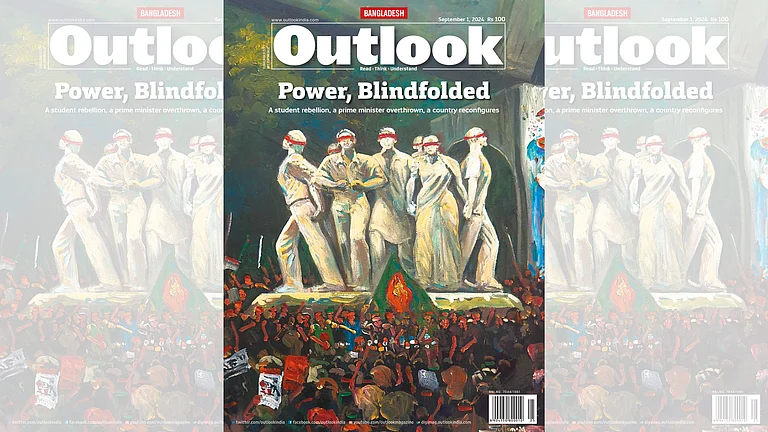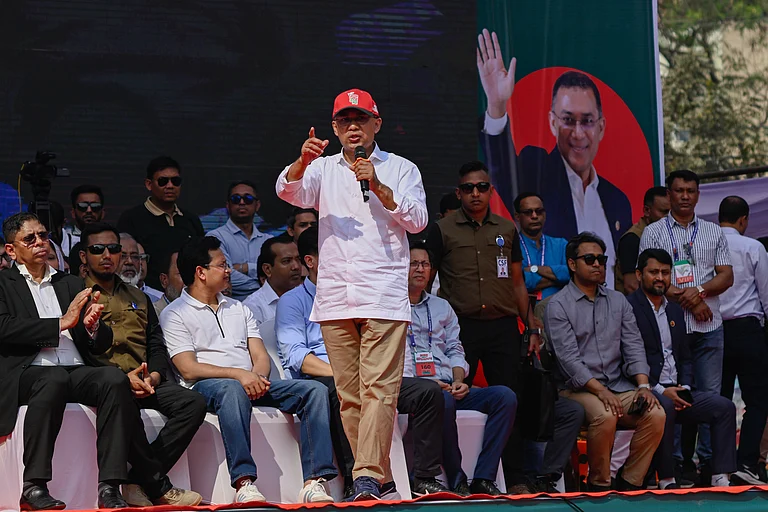From Hong Kong Protests to US President Donald Trump's impeachment, this year was marked by highly-charged events in geo-politics and civil protests across the world that resulted in a few governments being toppled down. As 2019 nears its end and a new decade begins, we look back at the events that shook, inspired and transformed the world.
Maidan Shar Attack
January 21: One of the worst attack by the Taliban on Afghan security forces took place when a vehicle carrying explosives rammed into the entrance of an Afghan military compound in Maidan Shahr, near Kabul. Three gunmen stormed the compound and were killed by security forces, according to officials. Amid lack of official confirmation on the death toll, some sources pegged the figure at more than 100.
Boeing Crash
March 10: Ethiopian Airlines Flight 302, a Boeing 737 MAX 8 aircraft en route to Nairobi, crashed six minutes after takeoff from Addis Ababa, Ethiopia’s capital. All 157 passengers on board died in the crash. Another plane of the same model had crashed less than five months ago. Following the second incident, All Boeing 737 MAX series of aircraft were grounded by various airlines and government regulators worldwide.
Christchurch Mosque Shootings
March 15: As many as 51 people were shot dead in attacks at two mosques during Friday prayers in Christchurch, in the worst mass shooting in New Zealand’s history. The accused gunman had live-streamed a footage on Facebook showing him driving to a mosque, entering and shooting randomly at people inside.
ISIS Caliphate Falls
March 23: The Kurdish-led Syrian Democratic Forces (SDF) liberated Baghouz in eastern Syria, which was the last stronghold of the ISIS. This marked the end of the Caliphate declared by the terrorist group in 2014. The SDF, backed by the US, the UK and France, said it had lost 11,000 "forces, leaders and fighters" battling ISIS. At its peak, ISIS controlled a large stretch of territory stretching from western Syria to the outskirts of Iraq’s capital Baghdad.
Assange Arrested
April 11: Julian Assange, co-founder of WikiLeaks, was arrested in London on extradition charges filed by the US, bringing a seven-year diplomatic stalemate to its closure. After spending 2,487 days in the Ecuadorian embassy, he was forcibly dragged out by the police in London on failure to surrender to the court on US federal conspiracy charges related to one of the largest ever leaks of government secrets. He was found guilty at Westminster Magistrates' Court and faced up to 12 months in a British prison.
Norte-Dame Cathedral Fire
April 15: A massive fire ravaged one of France’s most famous landmarks, the 850-year-old medieval cathedral of Notre-Dame in Paris. The fire caused the Gothic building's spire and roof to collapse but the main structure including the two bell towers survived. Thousands of people congregated in the streets surrounding the cathedral, while some observed the ruin in silence with tears in their eyes, others sang hymns and prayers and several churches in Paris rang their bells in response.
Sri Lanka Easter Bombings
April 21: During Easter mass a series of bombings took place in three churches and three hotels in several cities across Sri Lanka including capital Colombo, killing more than 250 people. Sri Lankan authorities suspected little-known local jihadist group National Thowheed Jamath (NTJ) to be responsible for the attacks which led to several arrests and a ban on the group.
Venezuelan Presidential Crisis
April 30: Venezuela’s political crisis peaks as opposition leader and disputed interim President Juan Guaidó led an attempted coup against President Nicolás Maduro. The coup failed and Maduro was reinstated as president with support from the Army.
Theresa May Resigns As British PM
May 24: Theresa May announces she will resign as Prime Minister of the United Kingdom after her Brexit deal faced a stalemate. In her statement, she said she had done everything she could to convince MPs to support the withdrawal deal she had negotiated with the European Union but it was now in the "best interests of the country for a new prime minister to lead that effort".
Khartoum Massacre in Sudan
June 3-10: An unprecedented massacre took place in Sudan on June 3 when heavily armed paramilitary forces killed more than hundred protesters who were staging a peaceful sit-in, raped women and dumped dozens of bodies in the river Nile. The incident attracted international condemnation while the African Union distanced itself from Sudan till a civilian government was installed.
US Sanction On Iran
June 24: US President Donald Trump imposes sanctions on Iran’s Supreme Leader Ayatollah Ali Khamenei, his office and those closely affiliated with it. This was the start of the US stepping up a policy of pressuring on Iran and further squeezing the country’s economy in retaliation to shooting down of US drone and attacks on international shipping, according to the White House. The Trump administration has since been imposing successive sanctions on the country, which has refused to budge. In the latest move, The United States treasury has in December imposed sanctions on Iran's biggest airline Mahan Air and its shipping industry, accusing them of transporting lethal aid from Iran to Yemen.
Amazon wildfires
August 21: Wildfires rip through the Amazon forest, which is referred to as the “Earth’s lungs”. The burning of the Amazon reached at its peak in August with around 40,000 individual fires, almost three times more than the same period last year. The fires only decreased in September, after president Jair Bolsonaro bowed to mounting international pressure and announced a 60-day ban on setting fires to clear land.
Hong Kong Extradition Bill Withdrawal
September 4: Hong Kong’s Chief Executive Carrie Lam announced she will withdraw the highly controversial extradition bill which had triggered months of protests. Full withdrawal of the bill was one of five key demands of protesters. An estimated one million people marched to the government headquarters in June in the first big show of protest against the proposed bill that would have allowed criminal suspects to potentially be extradited to China. Clashes between police and activists became increasingly violent, with police firing live bullets and protesters attacking cops and throwing petrol bombs. After the bill was withdrawn, the protests continue as they have evolved into demanding full democratic rights for Hong Kong.
US Calls Off Afghan Peace Talks
September 7: US President Donald Trump called off peace negotiations with the Taliban that had sought to end America's 18-year war in Afghanistan. Trump cancelled a secret meeting with Afghan President Ashraf Ghani and senior Taliban leaders at his Camp David retreat after the Taliban claimed responsibility for an attack that killed a US soldier. Trump said the talks restarted this month, but before the year could end, on December 30, the Taliban said they had "no ceasefire plans".
Saudi Aramco Attack
September 14: In the worst ever assault on the Middle-East’s energy industry, drone attacks caused fires at two major facilities run by Saudi Aramco, Saudi Arabia's state-owned oil giant. Yemen’s Iran-aligned Houthi group, which is battling a Saudi-led coalition in Yemen, claimed responsibility for the attacks at the facilities in Abqaiq and Khurais. The incident cut off about 5% of global oil production, prompting a massive jump in fuel prices.
Climate Strike
September 20: On September 20, three days before the UN Climate Summit in New York, a massive strike took place strike across the world including the US, UK, India, united in their demand for transformative action to address the climate crisis. The 16-year-old climate activist Greta Thunberg, who is a leading face of the protests, said millions participated in the strike globally. Thunberg emerged as the face of the global movement to tackle the climate emergency as she delivered a fiery speech in the UN Climate Summit and was later declared Person of the Year by the Time magazine.
US Withdrawal from Syria
October 6: The US administration announced that American forces would withdraw from the Syrian-Turkish border areas, which effectively left its then ally, the Kurdish foces, to fend for themselves against Turkey and ISIS. The move was criticized by Washington as well as other countries in the world.
Chilean protests
October 18: Students-led civil protests Chile began on Oct. 18 over a hike in metro fares but soon it spiralled into mass protests that has been continuing with demand for socioeconomic equality and better social services. The largely peaceful protests, which turned violent at some instances, saw at least 20 people dying and thousands being injured. Protesters also demanding President Sebastián Piñera.
US Special Forces Kill ISIS Head Abu Bakr al-Baghdadi
October 26: Islamic State leader, Abu Bakr al-Baghdadi, was killed in a raid by US special forces in Syria, ending a years-long hunt for one of the world’s most-wanted terrorists. US President Trump said the ISIS leader “died like a dog” in a two-hour operation conducted Idlib province, one of the few areas of the country outside Syrian regime control.
Iraq PM’s Resignation
December 1: Iraqi parliament approves resignation of Prime Minister Adel Abdul Mahdi after weeks of unrest amid lethal force used by the state to quell protests, leaving around 400 dead and thousands injured. Protesters had been agitating against corruption, high unemployment, and inadequate public services since October.
New Zealand's Volcano Erupts
December 9: A sudden eruption of a volcano in White Island, off the coast of New Zealand, claimed close to 20 lives at the tourist destination. Multiple explosions created a huge pyrocumulus cloud. The calamity took visitors by surprise as someone livestreamed from inside the crater and the feed went black in minutes as the volcano erupted.
Finland Gets World's Youngest PM
December 9: Finland elected Sanna Marin, 34, as its new prime minister and the thir female to lead the country. Marin, who has become the world's youngest serving prime minister, was chosen by her Social Democrats party as the sole candidate for prime minister.
Boris Johnson Re-elected As British PM
December 13: Boris Johnson led Britain's Conservative party to a historic win as he was re-elected the British Prime Minister with majority. The Conservatives defeated the Jeremy Corbyn-Labour Party by consolidating Brexit votes. The gamble taken by Johnson by calling for a snap election played out in his favour as Conservatives swept seats from Labour Party's traditional bases. Johnson's campaign had stressed that his party will "get Brexit done" and "forge a new Britain". He first became PM on July 24 after Theresa May’s resignation.
Pause In US-China Trade War
December 13: The tariff war between the world's biggest economic powers-US and China-came to halt after more than a year as the two countries signed a 'Phase One' deal. The move suspended tariffs that were planned to be put on on $160 billion in Chinese imports that were set to take effect Sunday. The US also halved the September 1 tariffs, put on a range of consumer products, from 15% to 7.5%. Trump escalated the ongoing trade war in May this year when he increased previous tariffs of 10%, levied on $200 billion worth of Chinese goods, to 25% on May 10. In retaliation, China raised tariffs on $60 billion worth of US goods. After a "truce" agreed upon in June between Trump and Xi Jinping fell apart, the US announced an additional 10% tariff on the "remaining $300 billion of goods". The trade war sustained with tit-for-tat moves till the two sides agreed upon the Phase One deal in December.
Trump Impeachment
December 18: On September 24, Speaker of the House, Nancy Pelosi launched a formal impeachment probe against President Donald Trump after an anonymous whistleblower accused him of “using the power of his office” to pressure Ukraine into investigating Democratic frontrunner Joe Biden and his son. The White House announced it would not cooperate with what it called the House’s “illegitimate proceedings.” On December 18, the House voted along party lines to approve two articles of impeachment. As 2019 ends, it sets a stage for a likely January trial in the Republican-controlled Senate, where the charges against Trump may be dismissed.

























